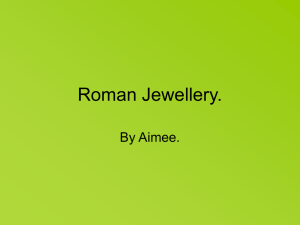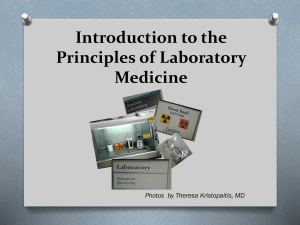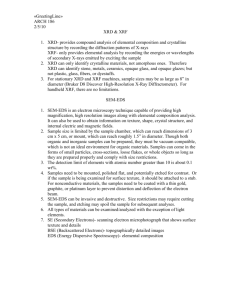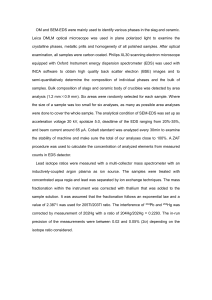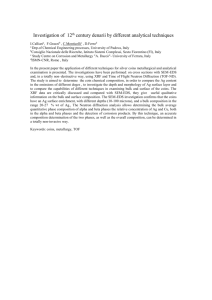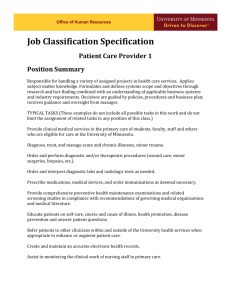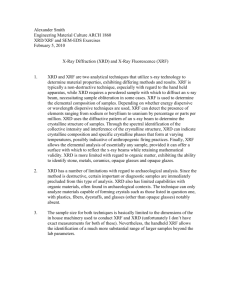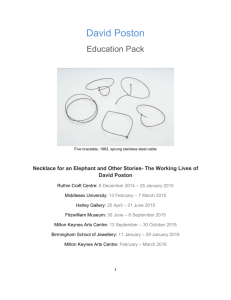DEVELOPMENT OF MULTI-ANALYTICAL APPROACH FOR THE
advertisement
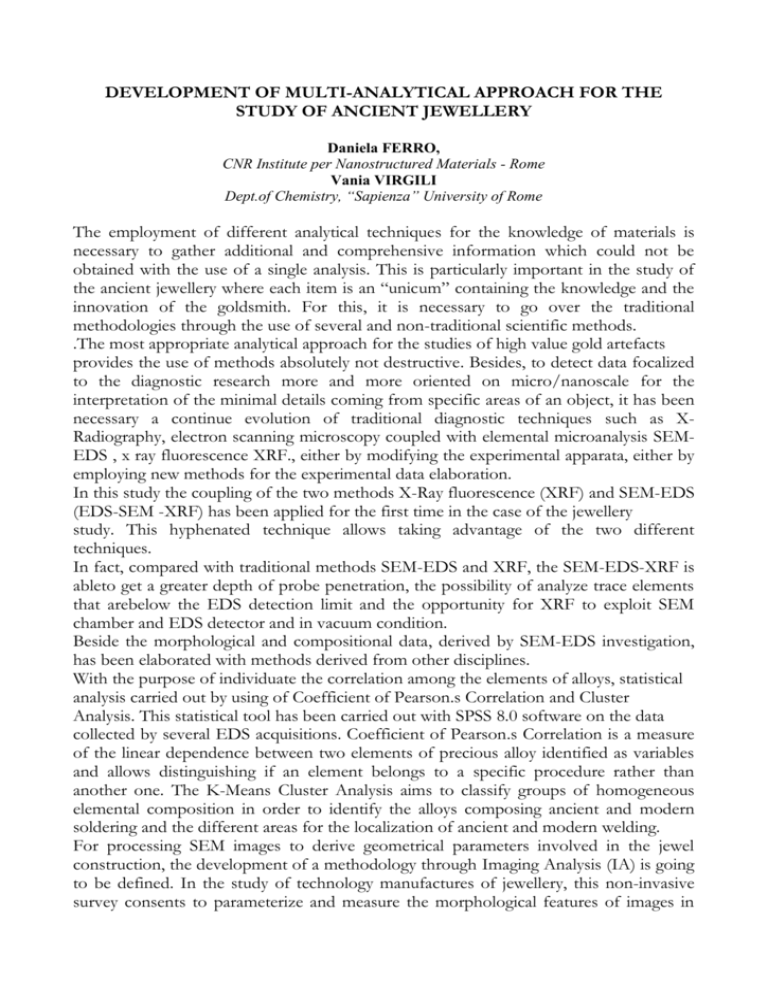
DEVELOPMENT OF MULTI-ANALYTICAL APPROACH FOR THE STUDY OF ANCIENT JEWELLERY Daniela FERRO, CNR Institute per Nanostructured Materials - Rome Vania VIRGILI Dept.of Chemistry, “Sapienza” University of Rome The employment of different analytical techniques for the knowledge of materials is necessary to gather additional and comprehensive information which could not be obtained with the use of a single analysis. This is particularly important in the study of the ancient jewellery where each item is an “unicum” containing the knowledge and the innovation of the goldsmith. For this, it is necessary to go over the traditional methodologies through the use of several and non-traditional scientific methods. .The most appropriate analytical approach for the studies of high value gold artefacts provides the use of methods absolutely not destructive. Besides, to detect data focalized to the diagnostic research more and more oriented on micro/nanoscale for the interpretation of the minimal details coming from specific areas of an object, it has been necessary a continue evolution of traditional diagnostic techniques such as XRadiography, electron scanning microscopy coupled with elemental microanalysis SEMEDS , x ray fluorescence XRF., either by modifying the experimental apparata, either by employing new methods for the experimental data elaboration. In this study the coupling of the two methods X-Ray fluorescence (XRF) and SEM-EDS (EDS-SEM -XRF) has been applied for the first time in the case of the jewellery study. This hyphenated technique allows taking advantage of the two different techniques. In fact, compared with traditional methods SEM-EDS and XRF, the SEM-EDS-XRF is ableto get a greater depth of probe penetration, the possibility of analyze trace elements that arebelow the EDS detection limit and the opportunity for XRF to exploit SEM chamber and EDS detector and in vacuum condition. Beside the morphological and compositional data, derived by SEM-EDS investigation, has been elaborated with methods derived from other disciplines. With the purpose of individuate the correlation among the elements of alloys, statistical analysis carried out by using of Coefficient of Pearson.s Correlation and Cluster Analysis. This statistical tool has been carried out with SPSS 8.0 software on the data collected by several EDS acquisitions. Coefficient of Pearson.s Correlation is a measure of the linear dependence between two elements of precious alloy identified as variables and allows distinguishing if an element belongs to a specific procedure rather than another one. The K-Means Cluster Analysis aims to classify groups of homogeneous elemental composition in order to identify the alloys composing ancient and modern soldering and the different areas for the localization of ancient and modern welding. For processing SEM images to derive geometrical parameters involved in the jewel construction, the development of a methodology through Imaging Analysis (IA) is going to be defined. In the study of technology manufactures of jewellery, this non-invasive survey consents to parameterize and measure the morphological features of images in order to obtain numeric data used as diagnostic markers of comparison of goldsmiths processes. In the more enlarged field of the cultural heritage this new research themes have to be considered as diagnostic supports to the archaeological findings or historical interpretation and furnish significant and potentially novel contributions in three main topics: - Innovation, overcoming of the traditional methodologies to plan experimental protocols characterized by an integrated use of analytical not-invasive instrumentations that are not included on traditional scientific methodologies, such as new hyphenated devices, software or statistical methods for data treatments. - Knowledge, the definition of diagnostic markers as characteristics of composition and/or morphology, chemical-physics processes for the identification of the technologies of ancient jewels manufacture. This information integrated and completed by the philological and historical-artistic studies, make possibility to go up again to technological transfers of manpower of craftsmen, the procedure recipes and the jewellery commerce in the Mediterranean Basin; - Transfer, transferability of analytical and complexes protocols in procedures applicable in the humanistic sciences Some studied cases are presented as examples of the methodology employed. daniela.ferro@cnr.it

